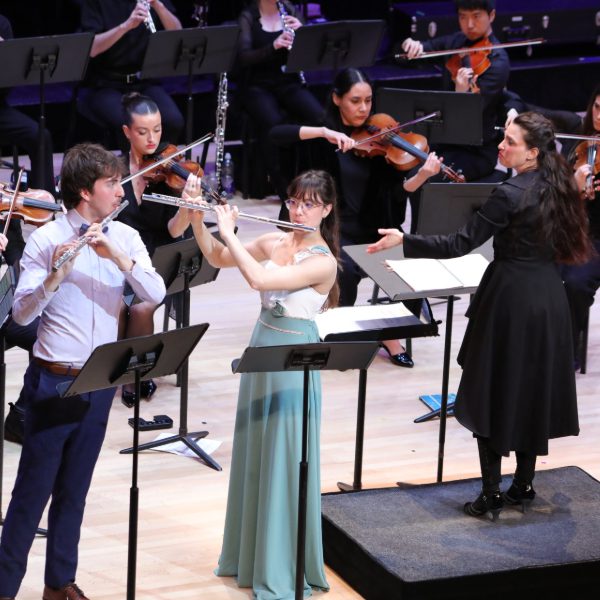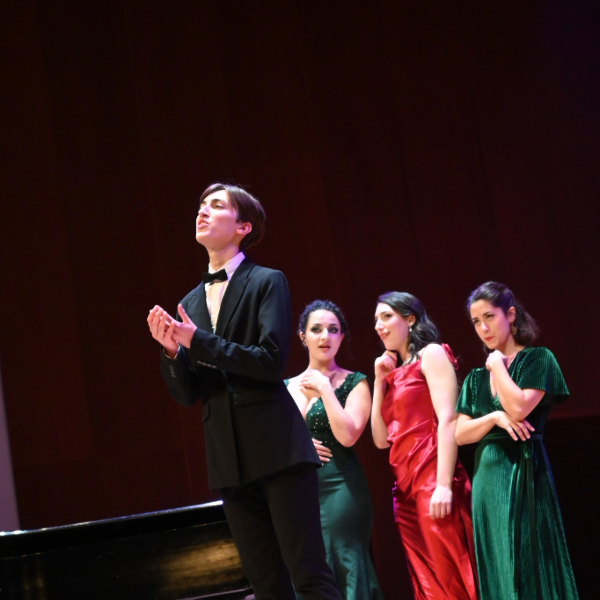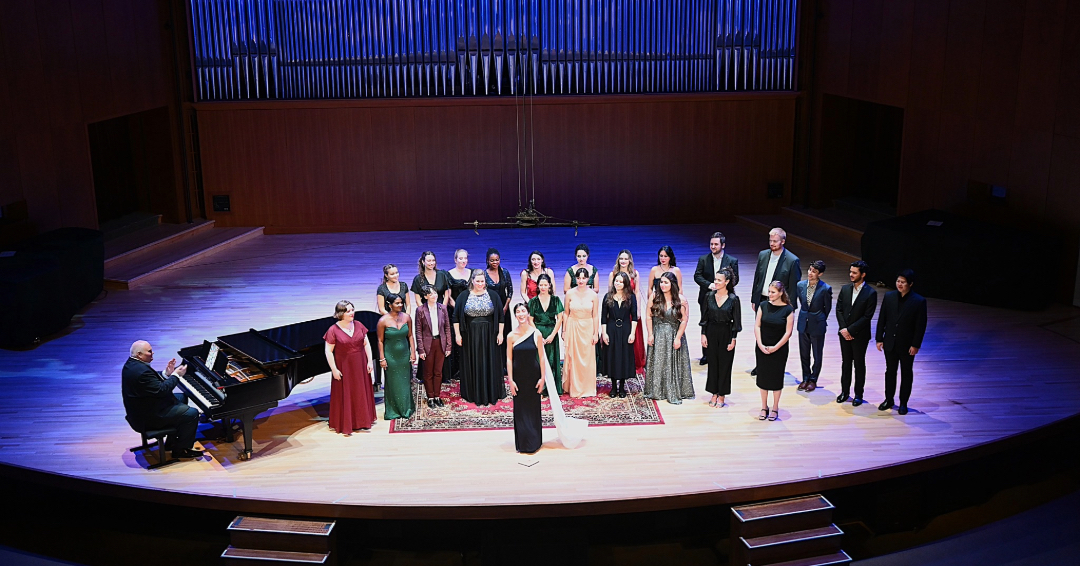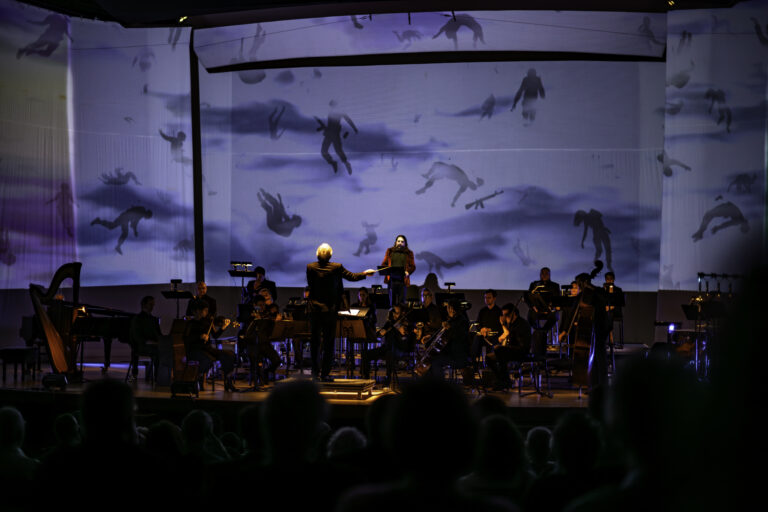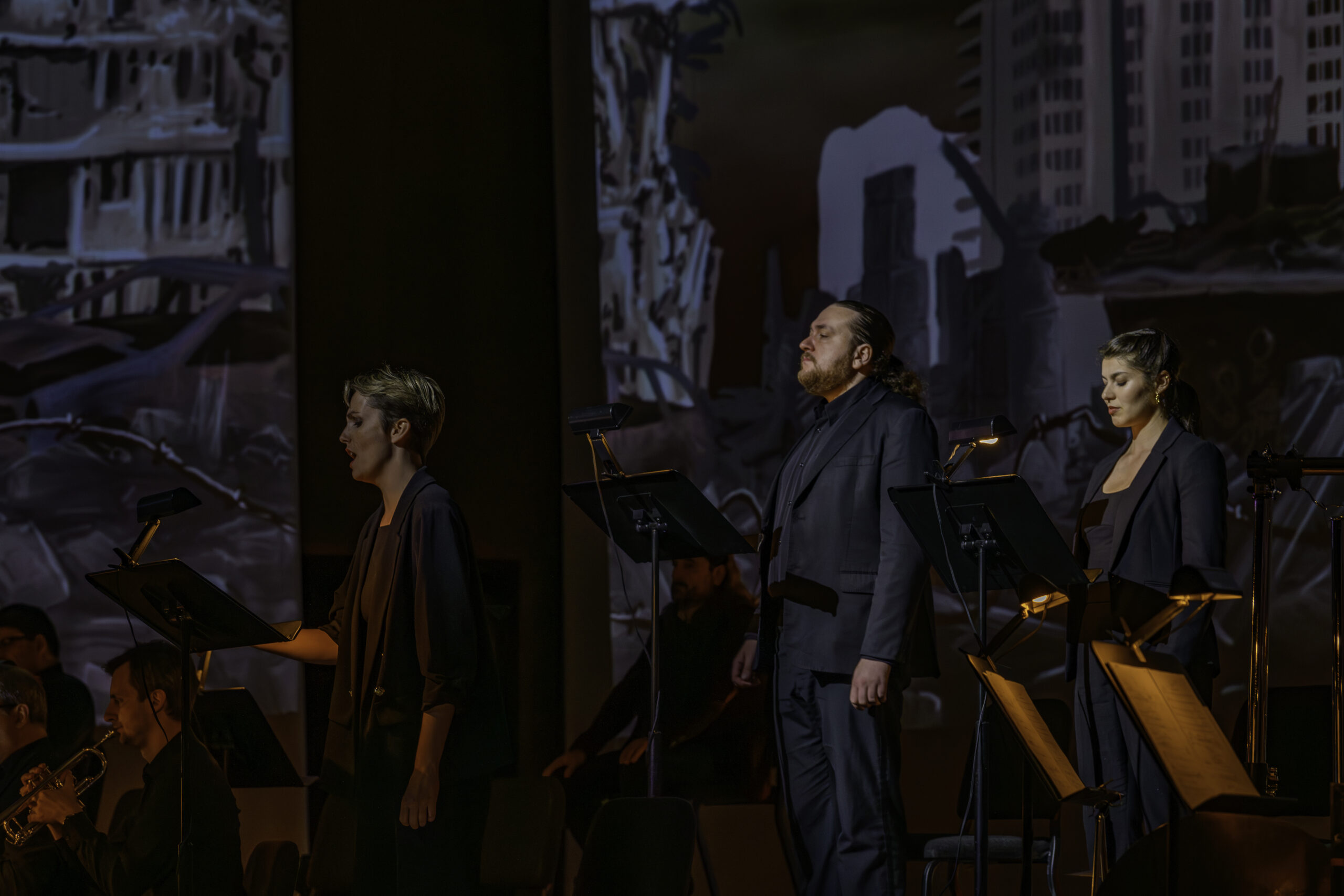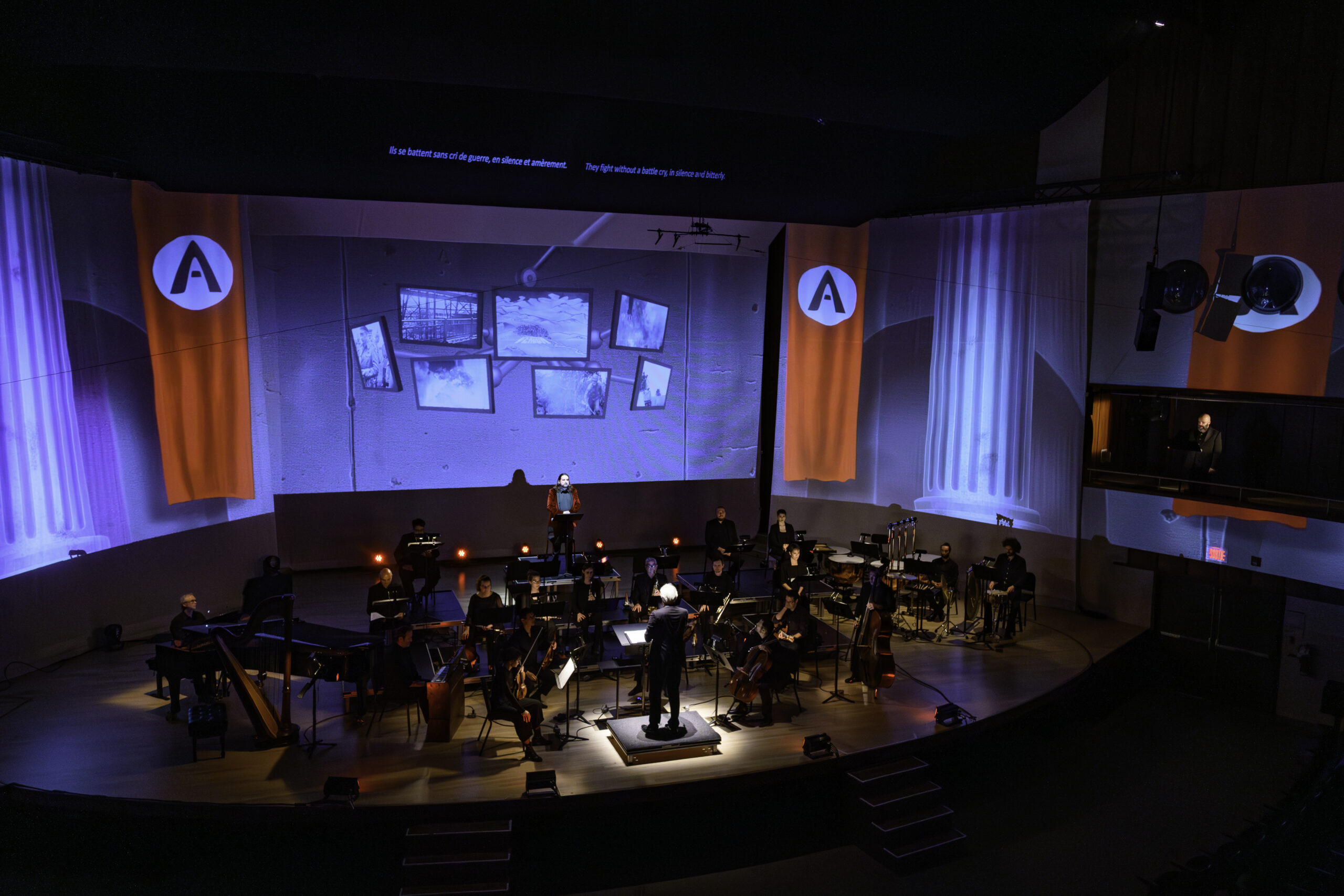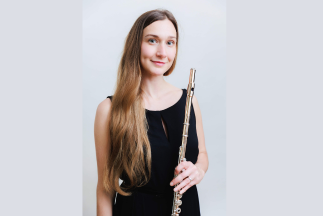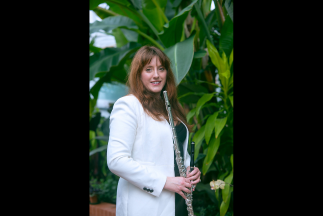Saturday evening, April 12, saw the Université de Montréal’s Rising Stars concert. Graduates in conducting, composition and flute performance presented the results of years of learning. It was inspiring.
Conductor Marie-France Mathieu began by presenting the first three pieces on the programme, creations by three composition students, Gabriel José Melim Schwarz, Amichai Ben Shalev and Charles-Vincent Lemelin. Schwarz offered a tonal and rather sunny neo-romantic piece, ironically entitled Folle (Crazy). Vibrant with energy and inspired by Schwarz’s native Brazil, it is a work that is pleasant to listen to and not very demanding for the listener.
This was followed by A Groyse Metzieh by Ben Shalev, a musician also known as a member of the ensemble Les Arrivants. The title means ‘a beautiful find’, which is in fact a sarcastic formula typical of Jewish humour, meaning ‘not much of anything’. I really enjoyed this post-modern piece, which mixes tonality with noisy avant-gardism, thanks to a wide range of instrumental techniques linked to experimentation. It begins in a sombre atmosphere with a warm string theme, quickly interspersed with bursts of colour that would not have displeased Messiaen. The rest moves slowly but surely towards saturation, punctuated by thunderous stridencies, before ending with a return to consonance, but with the brass choir. Superb.
Finally, Lemelin’s Passacaille had the greatest effect on me. In this piece, which treats the orchestra as a living mass, dark but nonetheless criss-crossed by many luminous streaks, and which gradually swells to its maximum sonic and harmonic density, I perceived echoes of Saariaho and Rautavaaraa, but also of a certain Straussian monumentalism and the muscular expressionism of ex-Hollywood composer Goldenthal. Passacaille is a demonstration of quiet power, perfectly calibrated and constructed. Your humble reviewer thoroughly enjoyed it.
The rest of the programme featured Romantic repertoire, starting with a charming Concerto for two flutes by Franz Doppler, the king of the flute (along with his brother) in the 19th century. It was an opportunity to see and hear at work two young performers who won 3rd prize in the OUM 2024 Concerto Competition, Gabriel Lapointe Guay and Sarah Billet. The two artists injected all the right sparkle into this smiling, feel-good music.
The second part was devoted to Schumann’s Manfred Overture and Stravinsky’s Firebird Suite (1919). Above all, it was an opportunity to judge the conducting work of Marie-France Mathieu and Paul Karekezi. It was the latter who gave us a Manfred full of drama, inhabited by a necessary discharge of conflicting emotions. Perhaps a little tempered, but beautifully embodied.
The Firebird was brought to life with beautiful colours and crystalline details, powerfully underlined by conductor Mathieu.
Since the two young conducting artists also led the OUM (Orchestre de l’Université de Montréal) in the creations mentioned above, I noticed two different but complementary personalities of baton and control.
Paul Karekazi, who conducted Lemelin’s Passacaille (and, as I just said, Manfred), gave a clear performance, but above all one imbued with emotional intensity and inner strength. This favoured strong nuances and a legato imbued with heartfelt lyricism.
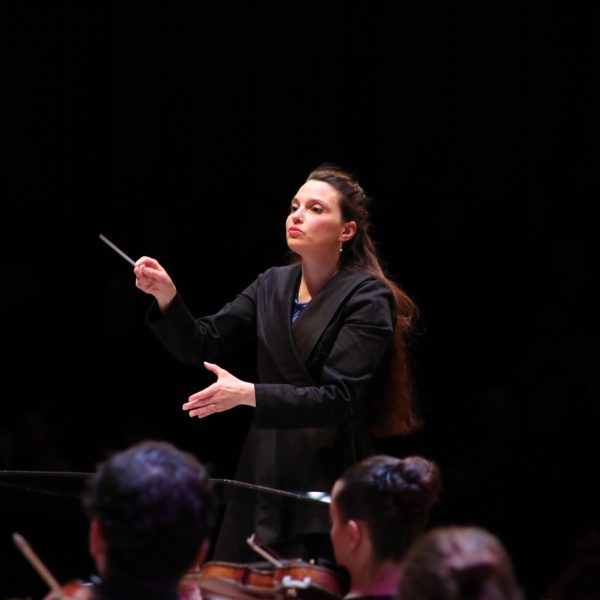
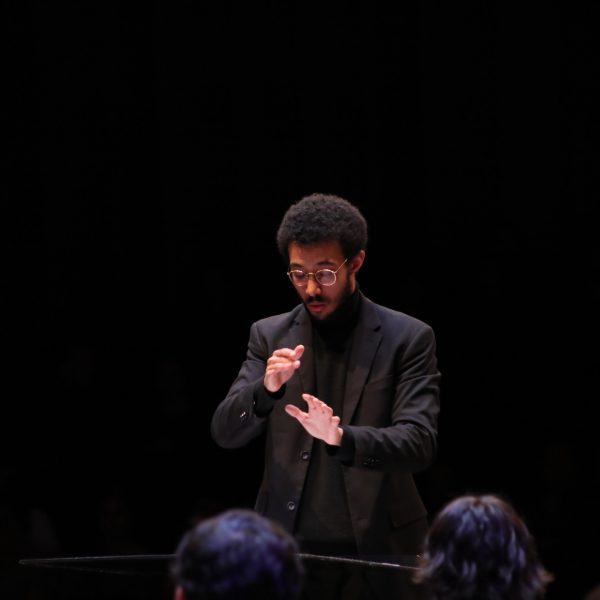
Marie-France Mathieu, on the other hand, is more sober in her outpourings, but nevertheless skilfully brings out the detailed colours and textural contrasts in a limpid manner, thanks to a surgical baton that leaves no room for doubt. She conducted the pieces by Schwarz and Ben Shalev, the Doppler (and of course the Stravinsky) very well.
Karekazi and Mathieu are students of Paolo Bellomia, the two flautists come from Denis Bluteau’s class, and the three composers benefit from the knowledge of Jimmie Leblanc, Ana Sokolovic, François-Hugues Leclair and Olivier Alary.
It was a wonderful evening for the future of music in Montreal, Quebec and Canada.
Photos: Tiago Curado
